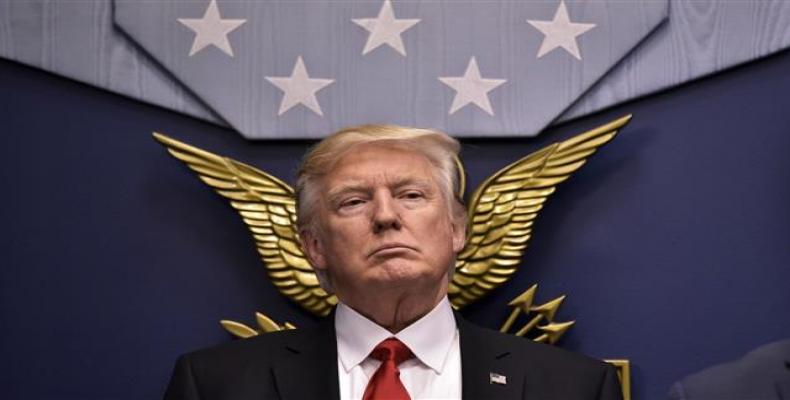Tokyo, July 1 (RHC)-- In an obvious reference to an eventual U.S. military action against Venezuela, President Donald Trump said over the weekend that he has a number of different tactics for regime change in Venezuela.
During a news conference held at the G-20 Summit in Osaka, Japan, Trump confessed that he had spoken about Venezuela "with almost every leader" with whom he met last week. Asked by a reporter whether it was time to reconsider his strategy towards the Bolivarian Revolution, which he's been incapable of overthrowing, Trump announced that he had five different strategies.
"We have a lot things in store... we dont want to get involved to the extent you may be thinking, but we have a lot of alternatives, we have five different alternatives for Venezuela. Well see what happens.
According to media reports, Trump talked about Venezuela during his G-20 bilateral meetings with Russian President Vladimir Putin and Brazil's President Jair Bolsonaro.
Five months ago, the Donald Trump administration recognized opposition leader and self-proclaimed 'president' Juan Guaido. Such recognition, however, has been politically and diplomatically ineffective as Nicolas Maduro continues to exercise his functions as the only constitutional president.
Later, Guaido sought to provoke a U.S. military intervention while attempting a coup d'état on April 30. Like other previous destabilization efforts, this action collapsed, although it had been backed by Trump's regional allies from the Lima Group, which is led by the right-wing presidents of Argentina, Brazil, Chile, Colombia, Costa Rica, Guatemala, Honduras, Panama, Paraguay and Peru.
Within what is a non-officially declared war against Venezuela, which started at least a decade ago, the U.S. has also being deploying several waves of economic sanctions which have killed over 40,000 Venezuelans since 2017, according to the research led by Jeffrey Sachs, the former director of the Harvard Institute for International Development.
Among those sanctions are the blockade of financial assets that the Bolivarian Revolution kept in banks abroad and impediments to the sale of Venezuelan oil in international markets.


